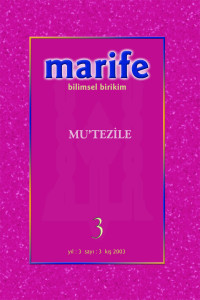Abstract
The present study is an attempt to concisely review and criticize the Mu’tazilah’s hermeneutical methodology. The material used in much of this article is extracted from various works of the Mu’tazilian scholar Qadi Abduljabbar. It is well known that Mu’tazilah is a religio-political movement whose historical and intellectual origins date back to the Umayyad period. Although many Mu’tazilian scholars defended the Islamic thought against the heretics at intellectual and, especially, theological levels, orthodox scholars such as Baghdadi, Isfaraini and their successors had tried hard to comdemn the Mu’tazilah in the Muslim opinion as a heretical movement. This ideological endeavor, unfortunatelly, resulted in the retirement of the Mu’tazilah practice from the scene of Islamic history. In this article, the understanding or methodology of Qur’anic exegesis of the Mu’tazilah will be examined from the perspective of dominant conception in Islamic orthodoxy. Subsequently, the question of whether the Qur’anic interpretations of this sect are heretical will be discussed.
References
- ................................................................................................................................................................................................................................................
Details
| Primary Language | Turkish |
|---|---|
| Subjects | Religion, Society and Culture Studies |
| Journal Section | Research Article |
| Authors | |
| Publication Date | December 31, 2003 |
| Published in Issue | Year 2003 Volume: 3 Issue: 3 |
This work is licensed under a Creative Commons Attribution-NonCommercial 4.0 International License.

